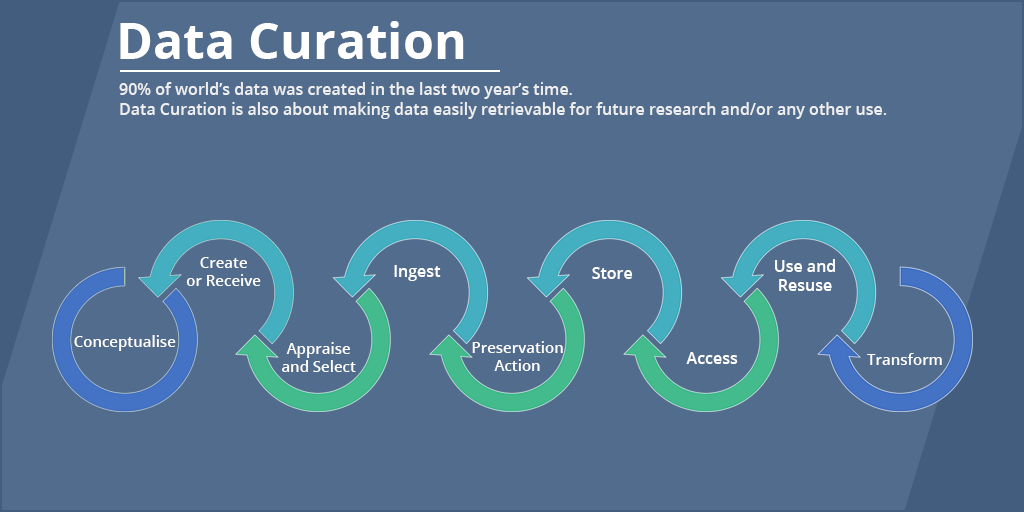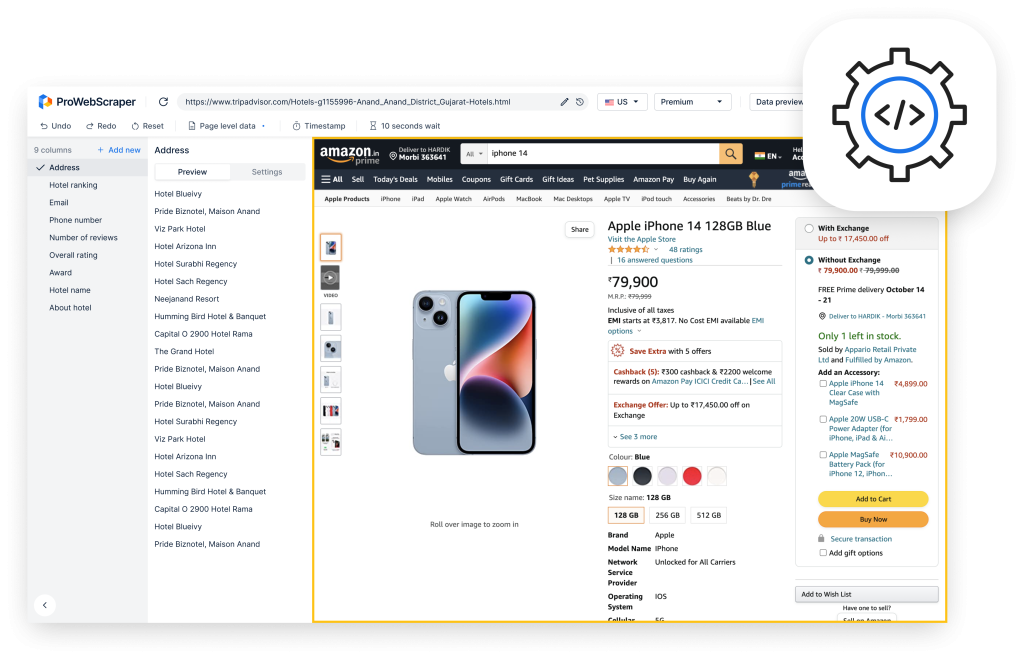
Introduction
Data is in overdrive…
90% of world’s data was created in the last two year’s time.
With the exponential growth of cell phones and connected devices, we are likely to create more data than we can manage.
By 2020, more than 50 billion smart connected devices will engage in creating, collecting and sharing data.
It’s spiraling out of control.
In fact, most companies are right now able to analyze only 12% of the data that they have.
When it comes to bad data, it costs $ 3.1 billion to the US every year.
Thus, having mere access to data is not going to be the competitive edge anymore. Making sense of this data will be the differentiator that you are looking for.
The right word for managing the data in a way that makes the data useful for its users is Data Curation.
Companies and organizations which will excel at Data Curation will seize the competitive advantage and race ahead of others.
Wondering what Data Curation is and how to do it?
Read on to discover the diverse implications of Data Curation in our Information Age.
What’s Data Curation?
Well, it’s hard to pinpoint at any one thing and say that this is Data Curation. The reason is that Data Curation stands for various things.
To put it crudely, managing data all throughout its lifecycle is what Data Curation roughly stands for.
However, to break it down into various parts, one can say that Data Curation is the process of gathering, maintaining and managing data in repositories in a way that it becomes useful for its end users.
Data Curation is also about making data easily retrievable for future research and/or any other use.
Some also argue that Data Curation also contributes value to digital research data all throughout its lifecycle.
For users pursuing data discovery and analysis, Data Curation is the pre-requisite.
Considering its various uses, it has given rise to the all new and powerful role of Data Curators.
Rise of Data Curators
Harnessing and leveraging data to solve the most critical business problems is a top priority of every organization today.
In a way, this is the job description of data analysts and data scientists. However, they cannot find, clean or manage data. They can only work on the data provided to them.
They start out by placing the requisition for specific types of data in a specific form and format. This is where Data Curators chip in.
They discover the data, manage it and facilitate the entire process of harnessing the data.
With growing stockpiles of unstructured data all around us, the role of Data Curators has become even more vital.
The more data there is, the more you need a Data Curator to sift through it and manage it.
This is precisely why we have witnessed the rise of Data Curators along with Data Analysts and Data Scientists.
As things stand today, you cannot win the battle only with Data Scientists. In fact, organizations which can leverage the advantage that great Data Curators can offer will pounce on the competitive edge.
As time progresses, the role of Data Curator is all set to grow more and more significant.
The Importance of Data Curation
Data Curation has a variety of implications for the data industry. It serves various functions for different stakeholders. It would be good to consider its various functions and come to terms with the growing importance of Data Curation.
Here’s how data industry looks at Data Curation.
Data Curation acts as a bridge
When it comes to data, every stakeholder has his/her ‘stake’ in it. Whether it is the data scientists or analysts, each one deals with data in a particular way.
However, they all operate in their closed circle. Software designers, data analysts, and data scientists remain on different frequencies.
For them to seamlessly operate and produce results, Data Curation acts as a bridge. Data Curation facilitates the process of collecting and managing the data that all these stakeholders can make use of it in their respective ways.
Without Data Curation, it would be unimaginable to access, process and make sense of data in a given organization.
As it acts as a bridge, there’s a growing emphasis on leveraging the powers of Data Curation.
Data Curation organizes the data
As it’s obvious, there’s a deluge of data around us. Every second, data is getting created at an astronomical pace.
Data analysts and scientists can help make sense of the data and enable you to churn out strategies for business growth. However, they would not be able to process the large piles of unstructured data and organize it.
This is where Data Curation comes in.
Data Curation organizes the data that keeps piling up every moment. No matter how large the datasets may be, Data Curation can help us organize it systematically so that the data analysts and scientists can access it in a format most suitable to them.
Once it is organized in a way that is convenient for data scientists, they can make use of it to derive insights that the business can leverage. However, it all hinges upon how well you use Data Curation to organize the data.
Data Curation takes care of quality
Earlier, having mere access to data was an advantage.
It’s no longer the case.
To be able to identify the data that is useful and discard that which is useless creates the advantage.
Data analysts and scientists cannot spare their valuable time to segregate data in this way.
This is why Data Curation can be so useful. You can harness Data Curation to take care of the quality of the data. You can ensure that good data remains with you and you let go that which is not useful. Data analysts and data scientists will know that Data Curation has taken care of the quality and hence will be able to trust the data provided to them.
In the age of big data and excess of data in a way, one can get completely lost without Data Curation on one’s side. Therefore, there’s a growing awareness in the data industry to capitalize on Data Curation and ensure quality control through it.
Future Implications of Data Curation
Businesses have more or less realized the importance of big data. They know it quite well how processing and harnessing data can enhance their existing business and even open up new business avenues.
As time progresses, businesses will compete only on the way they leverage data. However, access to data is not a problem even today. Data is getting created and stored at a phenomenal pace. The key, however, would be to organize and clean this data so that it can be used for a variety of business applications.
As data keeps piling up in future and as this realization sinks in, businesses will increasingly invest not just in data but also in Data Curation.
Data Curation is set to become the distinguishing feature between two businesses. The more effectively a business will be able to harness the power of Data Curation, the more successfully it will be able to forge ahead in the market.
Conclusion
Think of a painting or a sculpture that is curated. You can easily understand how valuable such a painting or sculpture would turn out to be.
In the same way, curating data is equally valuable for the business community. If you can capitalize on Data Curation, you can crystallize the stockpiles of data and see for what it is worth.
You can ensure that your business is powered by clean and useful data so that you can gain a competitive advantage and claim your position at the top in the market.
So harness the power of Data Curation and lead the way…

